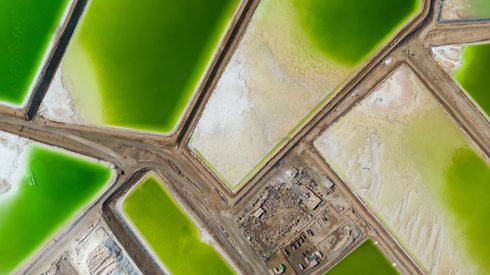“Glencore may consider alternative options for a European battery materials processing hub if the unnecessary extension of the approval process results in a delayed timeline that makes the project economically unviable,” the Glencore spokesperson said on Monday October 2.
The recycling hub, located in Portovesme on the site of Glencore’s existing lead–zinc and hydrometallurgical facilities, was expected to become Europe’s largest source of recycled battery-grade lithium with a target commissioning time of late 2026-early 2027, the companies said in May.
Glencore and Li-Cycle announced in late September their desire to fast-track operating the recycling hub, citing that the development of the hub had been “progressing well”. Those plans would involve moving the production of recycled lithium carbonate to the first half of 2024 from the processing of up to 11,000 tonnes of black mass annually.
With the second phase of the plan, the plant was expected to have processing capacity for as much as 50,000-70,000 tonnes per year of black mass, the equivalent of as much as 36 gigawatt hours (GWh) of lithium-ion batteries.
Sardinia’s regional government’s rejection of the fast-track process came due to its decision to “submit the demonstration project to a full environmental impact assessment”, which Glencore characterized as “very disappointing.”
“The decision is also contradictory to Italy’s strategy to fast-track critical raw materials and circular business models,” the Glencore spokesperson said.
“The key advantage Portovesme and Italy have is the ability to deliver a major battery-metals refining facility on a timeline that is faster than a greenfield project. The facility could be a significant source of domestically produced critical materials, including battery-grade lithium carbonate in Europe,” the spokesperson added.
A spokesperson for Li-Cycle had not responded to questions at the time of publication.
The details of the major new plant have come at a time when major European Union-based companies were planning to expand into battery recycling, amid the introduction of stricter targets for the recycling of battery raw materials from 2027, and efforts to classify black mass as “hazardous waste” and thereby to cut off exports of such material to nations outside the Organisation for Economic Co-operation and Development (OECD).
Although Europe is generating increasing volumes of black mass, it continues to have a lack of domestic consumers of the material.
This situation is set to change in the coming years amid a raft of new investments, which include the Glencore-Li-Cycle plans.
France-based metallurgy company Eramet and utility firm Suez announced last week that they will begin the recycling of lithium-ion batteries from 2025 with a downstream unit to extract metals from black mass starting in 2027.
Other companies setting up pilot plants for black mass processing include German battery materials producer BASF and German start-up Tozero.
Market demand for greater reporting of the EU black mass market led Fastmarkets to launch EU domestic black mass price assessments on September 20.
Want more insights and forecasts for the battery recycling and black mass market?
Keep up to date with global market insights and predictions for the battery recycling market with the Fastmarkets NewGen Battery Recycling Outlook.





